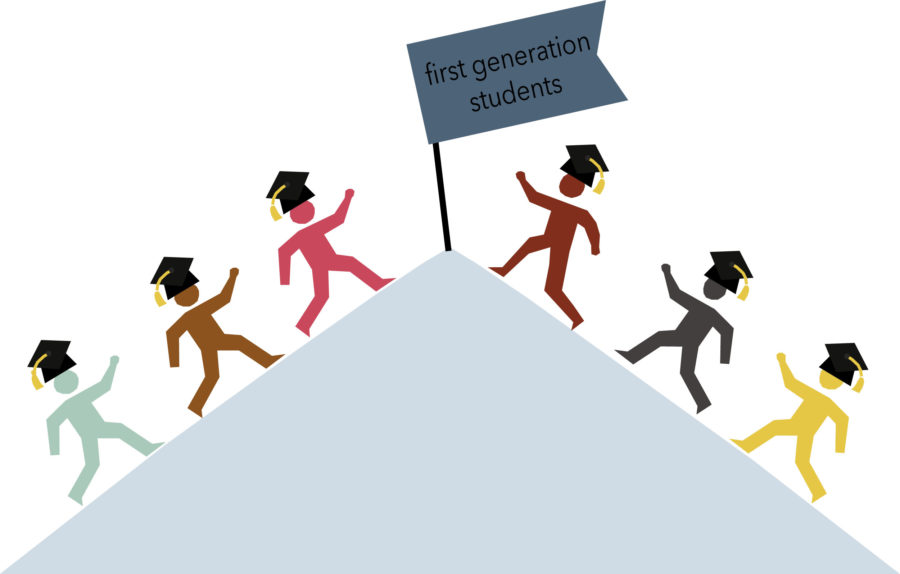First-generation college students are defined as students whose parents do not possess a four-year college degree. Every college student faces challenges, but there is a particularly unique set of challenges that comes with being a first-gen college student.
A lack of knowledge about financial resources available to college students is one barrier for first-gen students. Without the guidance of a parent who has gone through the process of applying for scholarships and financial aid, some students struggle.
As a first-gen college student, I saw this disconnect firsthand when I struggled to fill out scholarship applications and FAFSA for the first time.
According to the First Generation Foundation, an organization which provides resources and information to first-gen students, 30% of all entering freshman will be the first in their families to attend college.
Family expectations for first-gen college students can serve to either encourage or discourage these students. Some families, like mine, are supportive of their family members being the first to attend college, while other families might consider college a waste of time and money.
Either way, it is important for students to understand that they should do what is best for themselves. Going against familial expectations can be difficult, but the decisions people make when they are young can have effects on the rest of their lives that they will ultimately have to live with.
First-gen college students are less likely to major in science, engineering or mathematics than their peers. The reason for this is not entirely clear.
At the University of Southern California, there is a program called STEM Collaboratives. This program attempts to create an integrated environment of support for first-year science, technology, English and math students. One of the goals of the program is to attract first-gen college students to STEM fields and keep them in these programs.
According to an article by Matthew Kredell posted on the USC website, first-gen students sometimes struggle simply because they are not adequately prepared.
This could be one explanation for why first-gen students seem to steer clear of STEM programs.
Parents of first-gen students might have trouble with the idea of their child leaving home for a college that is potentially very far from the student’s hometown. Changes in family dynamics can be hard to adjust to at first, but college is a good time for students to learn independence and how to adapt to new situations.
When I started college as a first-gen student, it was a great opportunity for me to learn to do things on my own and teach myself things that I did not know how to do before.
Ultimately, I did not personally feel that being a first-gen student held me back or put me at a disadvantage, but some first-gen students can struggle because of factors unique to their circumstances. Every situation is unique, and all students, including first-gen students, have to find their own way.

























